ARTICLE AD BOX
Maddy Savage
Reporting fromUppsala, Sweden

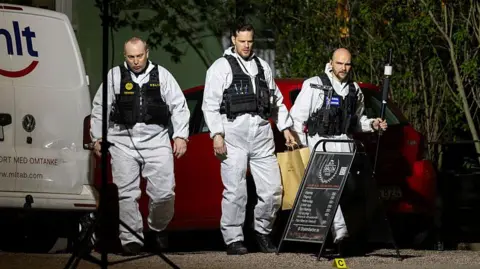 Getty Images
Getty Images
Police forensic officers at the scene of the shooting this week
Ahead of Sweden's Walpurgis festival to mark the start of spring, young people were busy selecting outfits or getting their hair done. Not all of them made it there alive.
At a hair salon in Uppsala, a city north of Stockholm, three young men who police say were aged between 15 and 20 were shot dead on Tuesday before the celebrations started.
The horror left many shaken in the build-up to the festival, known as Valborg in Swedish, which is typically a convivial affair each 30 April on the eve of the Christian feast day of Saint Walpurga. Celebrated nationwide, Uppsala hosts the country's largest and most high-profile Walpurgis events, popular with students.
The partying did go ahead in full swing, but a subtle heaviness hung over the Swedish blue and yellow flags which fluttered around the city.
And now, with the festival finished, it's only police tape - not flags - fluttering outside the basement barber shop where the shooting took place close to Vaksala Square.

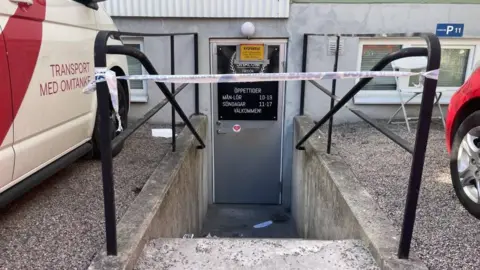
The attack happened the day before the Walpurgis festival in Uppsala
'I knew something had happened'
"It's really sad," says 20-year-old student Yamen Alchoum, who is in the area to eat at a nearby food truck. He says he was at another barber shop on the night of the shootings, but previously had his hair cut at this salon multiple times. "I think if I was there [on Tuesday]…I would be, like, involved in the shooting. And it's a bit scary."
According to witnesses speaking to Swedish media TV4 and Aftonbladet, two of the young victims were dressed in barber capes and sat in parlour chairs when they were shot in the head just after 5pm on Tuesday.

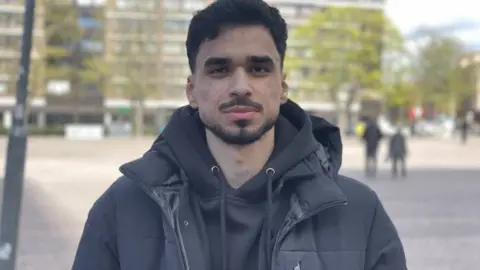
Yamen Alchoum
The city centre was busy at the time as commuters made their way to the nearby train station and students from the city's prestigious university cycled back to their flats.
Witnesses reported hearing loud bangs which many mistook for fireworks. Minutes later several police cars and an ambulance arrived, blocking the street and forcing a bus to turn around. Helicopters and drones were dispatched to try and track down the suspect. Local media reported that he had worn a mask and used an electric scooter to get away from the scene.
"I heard the helicopters, so then I knew that something had happened," says Sara, a 32-year-old who lives on the street. She says her phone quickly lit up with news notifications and texts from friends asking if she was okay.
Around two hours after the shootings, police arrested a 16-year-old boy. In Sweden, suspects can be held based on different levels of suspicion, and the teenager was initially held at the second-highest level, indicating strong suspicion.
However, by Friday, prosecutors said the case against him had weakened and he was released.

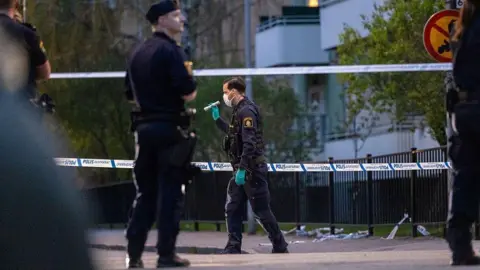 Getty Images
Getty Images
Police rapidly arrived at the crime scene
On Saturday, Swedish police confirmed that six people have now been arrested in connection with the case. The suspects range in age from under 18 to 45, according to the state prosecutor's office, and one is suspected of carrying out the killings.
People intending to visit Uppsala for the Walpurgis festival were advised not to change their plans, as police promised extra resources on the cathedral city's streets and suggested the shooting was likely an "isolated incident".
While many were shaken, tens of thousands of Swedes still heeded their advice, packing the banks of Uppsala's Fyris river to watch the annual student raft race, drinking in the city's pubs and parks or heading to a huge public bonfire in the evening. Others joined the annual spring ceremony outside the university where current and former students gathered to wave white caps.
"I don't really feel so scared," says Alvin Rose, 19, a social studies student, having a snack in Vaksala Square, just around the corner from where the shootings happened. "It feels like there's more security, more cops about."

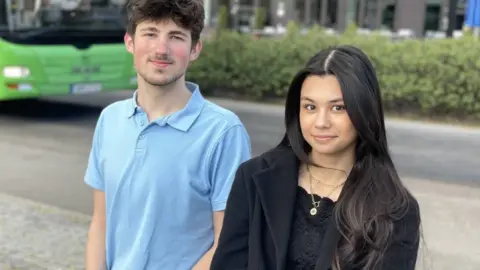
Alvin Rose says he's noticed more security since the attack
His friend Kassandra Fritz, an 18-year-old natural sciences student, says she has driven to Uppsala from her home in Gävle, two hours north, to "have fun and meet new people".
She reflects that she no longer has a "strong" reaction to news about shootings in Sweden since they are frequently in the headlines. "There's been so many shootings lately, not only here in Uppsala but like, everywhere in Sweden."
A hotspot for gun violence
Over the past decade, Sweden has emerged as a European hotspot for gun crime, often linked to criminal networks. Research for Sweden's National Council for Crime Prevention released last year concluded that the profile of perpetrators is "increasingly younger", with growing numbers of teenagers both carrying out or dying from gun violence.
Sweden's Prime Minister Ulf Kristersson was on a work trip to Valencia when the Uppsala shooting took place, but has since described it as "an extremely violent act".
"This underlines that the wave of violence is not over - it continues," he said in an interview with Swedish news agency TT on Wednesday.
At a news conference the day after, officers said they were investigating the possibility that the deaths were linked to gang crime, but said it was too soon to confirm this.

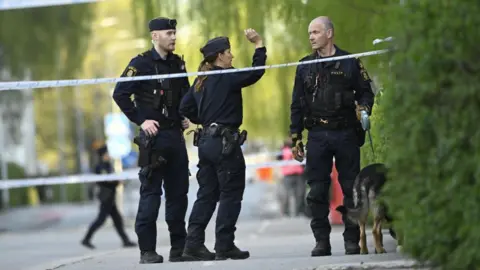 Getty Images
Getty Images
Police have been investigating whether the deaths are linked to gang crime
Police in various Swedish cities have previously said it is becoming more common for gangs to contract vulnerable children to carry out crimes, because those who are 15 or younger are below the age of criminal responsibility in Sweden.
Sweden's government recently proposed controversial new legislation that would allow police to wiretap children, in an attempt to prevent them from being recruited to teenage gangs.
Ministers have also said they want to tighten the country's gun laws.
In February, 10 people were killed in the country's worst mass shooting at an adult education centre in the Swedish town of Orebro. In this case, police suspect a 35-year-old was behind the killings. He legally owned a weapon, and was found dead inside the building.
Tributes and tears

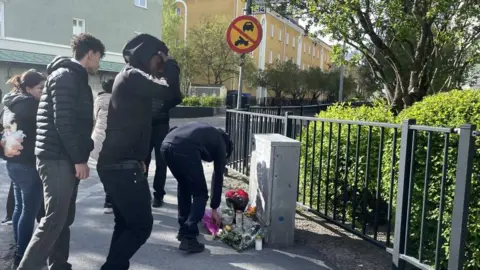
Young people have been leaving flowers on the street corner near the salon
Outside the hair salon in Uppsala, 20-year-old Yamen says he has never been involved in gang crime but knows plenty of others who have.
"Many times in my school, there was gang violence, and in the streets - dealers," he says. "But my personality was to work, study, and now I am in college."
As he leaves to meet friends, a steady stream of young people continue to stop at the street corner next to the hairdressers, some bringing bouquets of flowers. Several appear visibly shaken and have tears in their eyes.
"I knew him very well," says Elias, a 16-year-old who says he was friends with one of the victims, and has asked the BBC not to share his surname. "It feels unreal, you know. It doesn't feel like I've truly accepted the situation."

 10 hours ago
7
10 hours ago
7
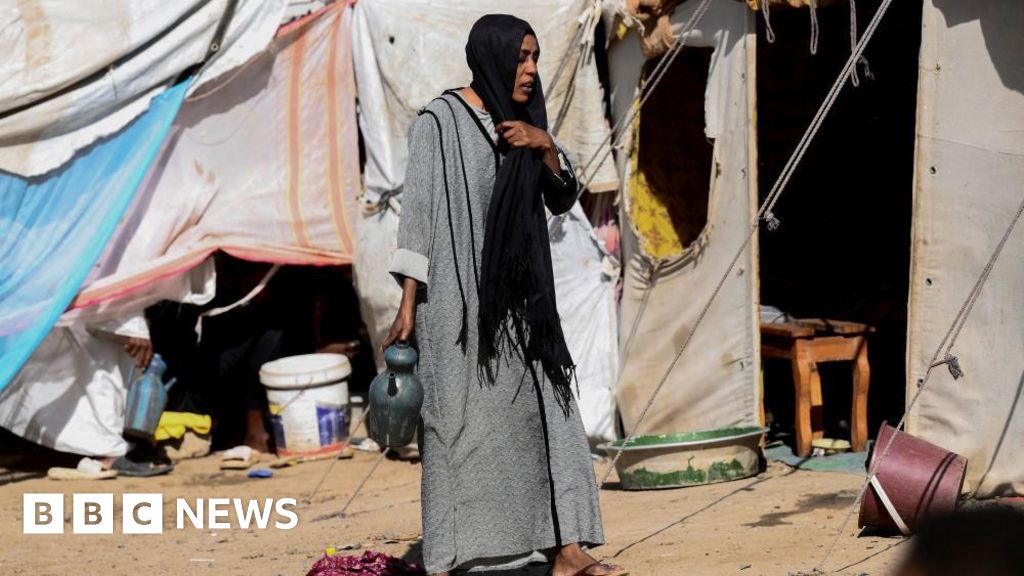
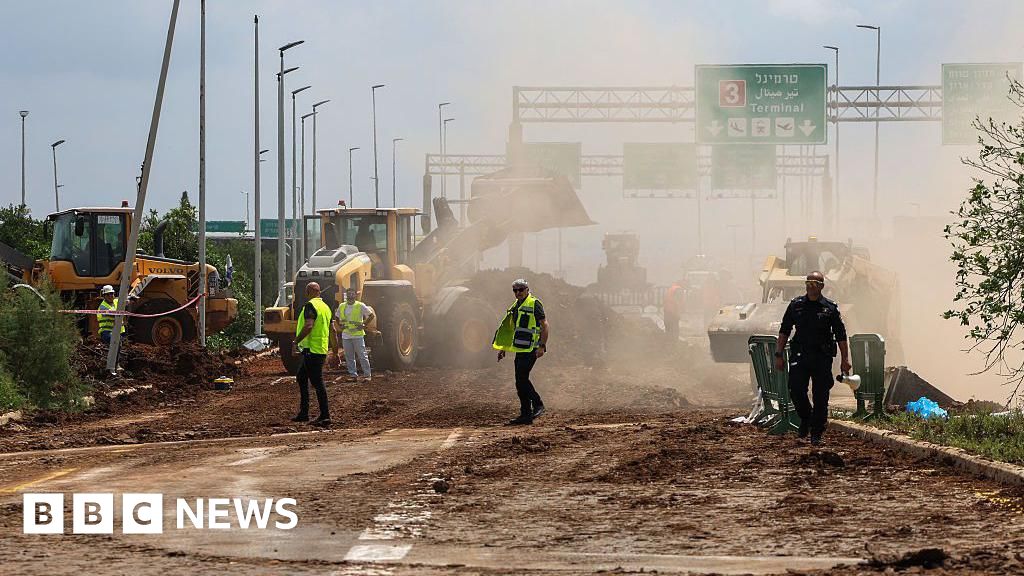
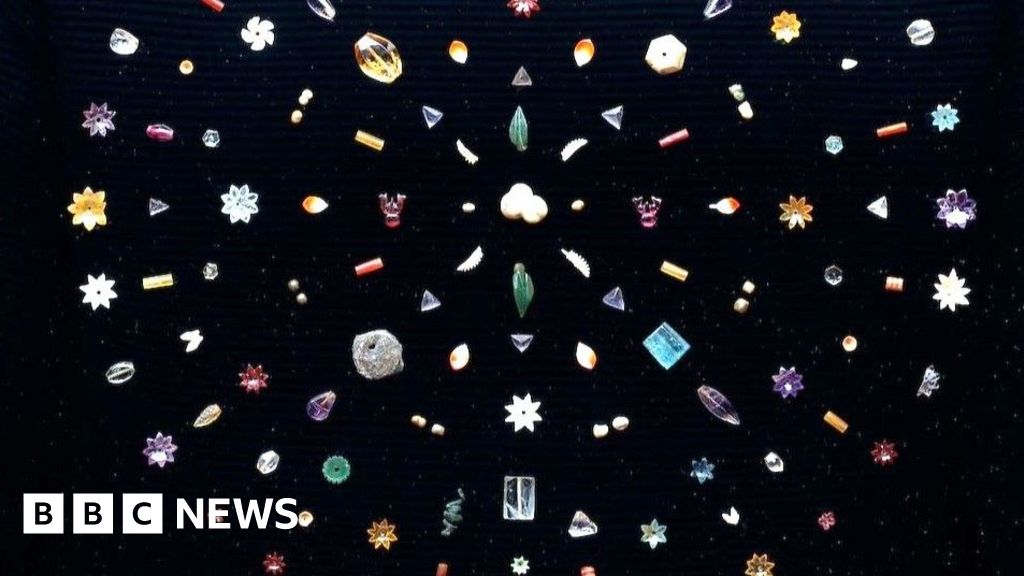





 English (US) ·
English (US) ·